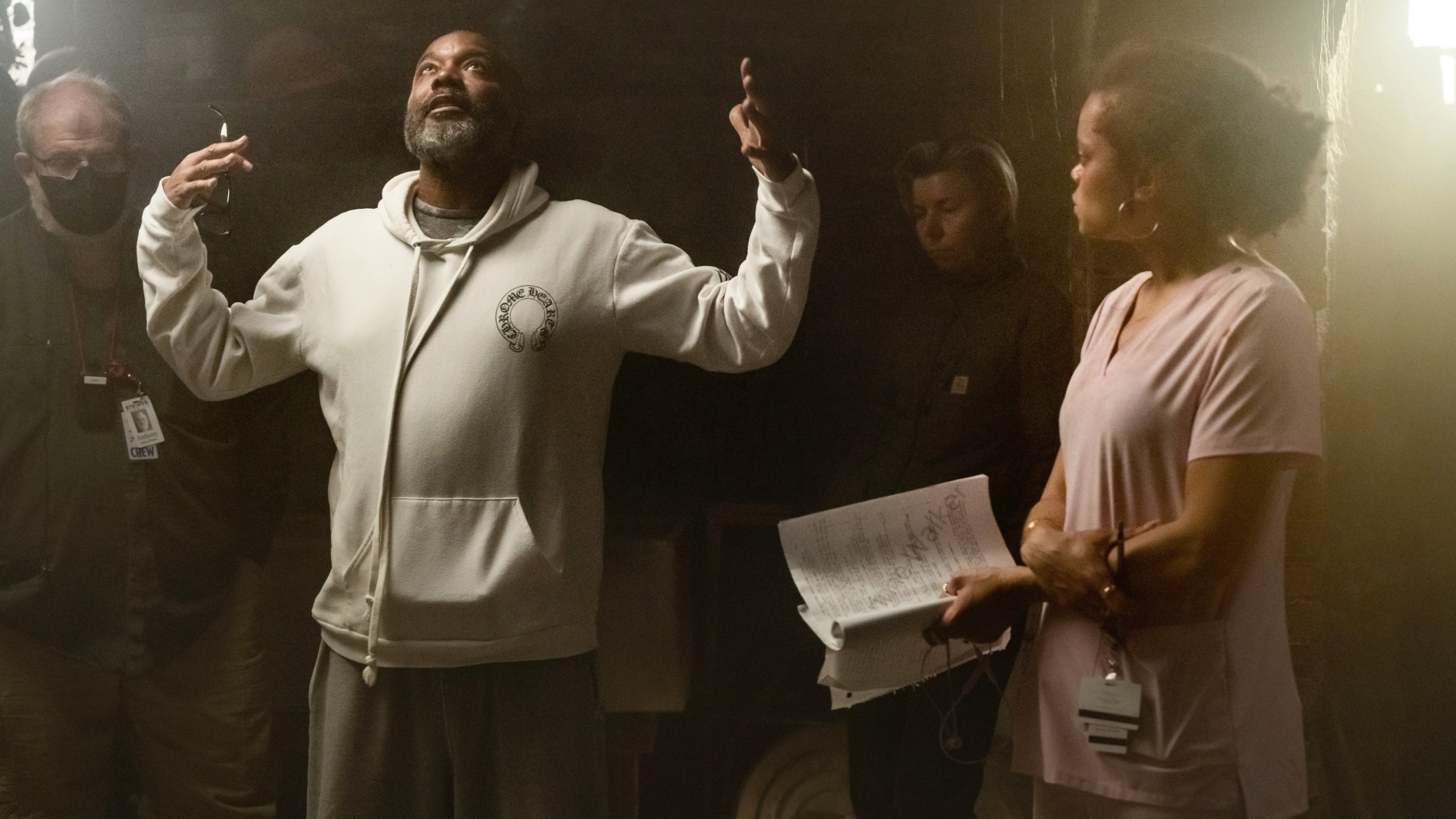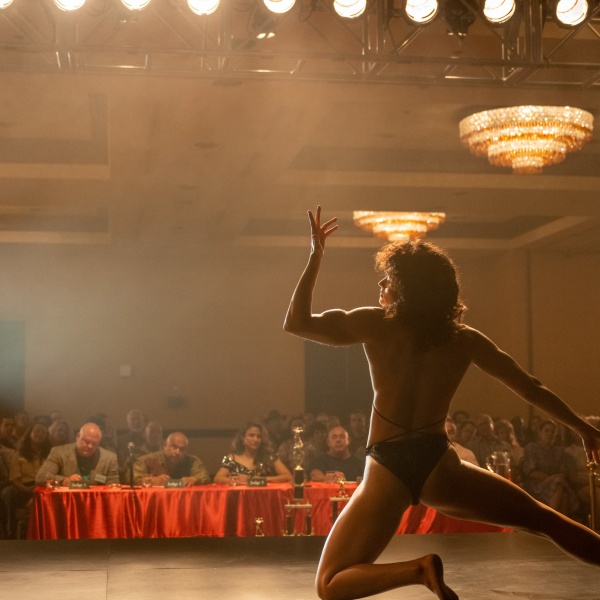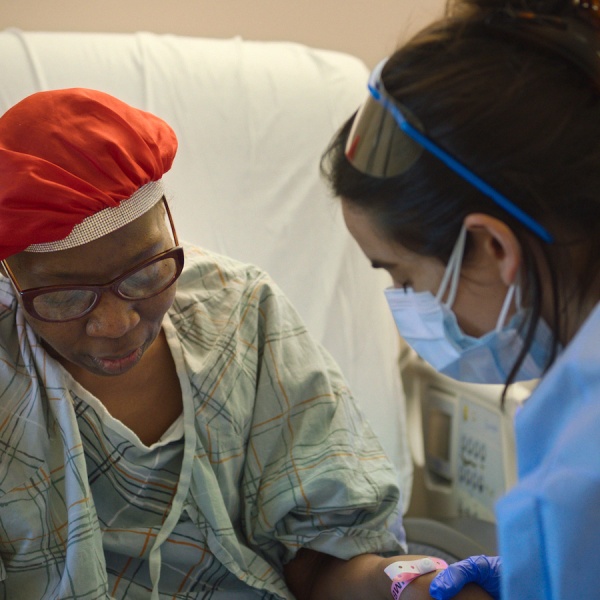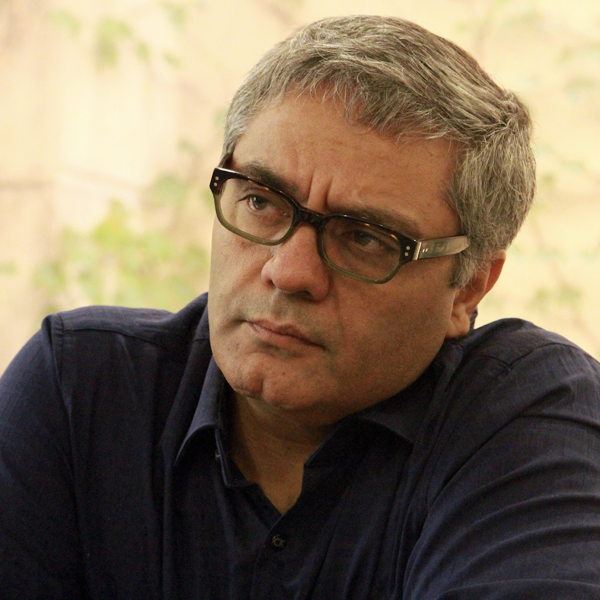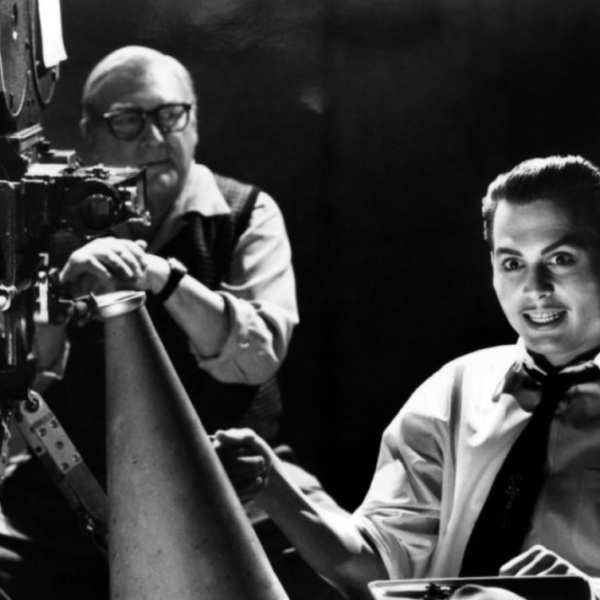The wild making of Lee Daniels‘ “The Deliverance,” his Christian horror movie for Netflix, included star Andra Day actually speaking in tongues on set — and off-script. And it may be the first Black-driven studio movie ever made for the mainstream that tackles demonic paranormal activity, a space otherwise dominated by the white likes of everything from “The Exorcist” to “Insidious.”
Of all the auteurs Netflix could’ve hired for a streaming push into faith-based content, hiring Daniels, the Oscar-nominated director of the bleak family drama “Precious,” political tapestry “The Butler,” and B-movie Southern hothouse “The Paperboy,” may seem a surprise choice. But Daniels, who was raised Christian in Philadelphia before his move into Hollywood as a talent manager and casting director and then a filmmaker, might be the most inspired pick. “I wanted to be the first at the gate to tell this type of story,” Daniels told IndieWire.
Both intimate kitchen-sink drama and splatter-and-CGI horror genre offering, “The Deliverance,” shot in Pittsburgh, centers on “The United States vs. Billie Holiday” Oscar nominee Andra Day as Ebony. She’s the hardscrabble single alcoholic mother of a Pennsylvania brood of three who moves her family into a new house, only to find demonic possession afoot dating back to the home’s previous residents. Ebony meanwhile is paying for chemotherapy for her mother, Alberta (Glenn Close), a religious woman long-entrenched in the Black community despite being white. And now Ebony has her youngest son Andre’s (Anthony B. Jenkins) psychic connection to a satan-spent spirit to contend with. Plus, you have Aunjanue Ellis-Taylor and Mo’Nique (who settled a lawsuit relating to gender and racial pay bias over a Netflix stand-up special as production went underway) in the ensemble as interlopers wary of evil to come. Maybe they’re all possessed in their own way.
It’s a tough year to break into the exorcism market, with competition ranging from Sydney Sweeney as a pregnant nun in the Catholic horror “Immaculate” to the underrated satanic IP reboot “The First Omen,” but “The Deliverance” delivers on its haunted premise as Ebony’s family fights to rid their youngest (and the rest of themselves) of a vengeful demon spurred by generational trauma. In a climactic sequence as the family wards off ancient evil from their home via spiritual incantatory means, Ebony begins speaking in tongues as an otherworld-breaking set piece swirls around her. That wasn’t in the script written by David Coggeshall and Elijah Bynum — it was the off-book work of Day, a born-again Christian, whose character by the end of the film finds salvation for her sins and her family’s long-ago transgressions through an encounter with Jesus Christ.

“When she’s speaking in tongue, that’s not me directing her. That’s her speaking through God, or God speaking through her, and it was a powerful, powerful moment to watch that at the crescendo of the film, for her to just tap into God the way she did,” said Daniels, who shot the film in mid-2022 and with — as we learned — literal blessings.
The day that scene shot, Daniels did not know Day would speak in tongues — otherwise known as glossolalia as practiced in Pentacostal churches. “We did it in two takes … She went off-script, and then she went in, and I said, ‘Keep the camera rolling.’ The crew were in awe, as I was. One of the tricks to directing is casting the right person for the role, and I instinctively knew [Andra Day] was really a believer of Jesus Christ. I needed an actor that really understood this type of spirituality,” he said.
The spiritual overtures of the screenplay — inspired by the Ammons haunting case that took place in Gary, Indiana in 2011 — carried over to the set and its potential for ominous portent. “We had people praying over us constantly, from the time we had someone that did deliverances there, praying for us, over us constantly every day. Glenn [Close] wasn’t spiritual when she walked into this, and she walked out a different person,” Daniels said.
That also meant Daniels and the production team hired an ordained Christian production assistant to actually conduct deliverances on the set, as the “Empire” director wanted to avoid the notorious production-derailing curses on religiously charged films like “The Exorcist.” William Friedkin’s Oscar-nominated classic, shot on a soundstage in New York in 1972, reportedly endured deaths, fires, and other mishaps.
“Part of what I told the producers was, ‘I can’t do this unless I have someone protecting me on the set,’ because I’d read all those horror stories on the set and the makings of ‘The Exorcist.’ Uh-uh, baby. I needed protection,” said Daniels, whose Episcopalian mother originally told him not to do the movie at all back when he almost passed on the project in the aughts. “She was just like, ‘You are a portal. You work from a place of groundedness, and your soul is open, and I don’t want anything bad happening to you,’” Daniels recalled his mother telling him.
“We would take turns praying to the 200, 300 people working every day, and when we first started prayers, I first got somebody from HR, they were like, ‘This is not going to work. You have to tell people.’ I go, ‘What? I can’t pray? What are you talking about?’ They said, ‘You’ve got to tell people that if you want to leave, they shouldn’t feel they have to pray,’” Daniels recalled. “I would say, ‘For those of us who don’t want to pray, please don’t take offense, and you can leave.’ There were a few that left, but for the most part, most of them wanted to be covered by the blood of Jesus. They knew what was up.”
Glenn Close may have emerged from the “Deliverance” set a more spiritual person before, but taking on the role of Alberta in her second wild turn for Netflix — see her Appalachian Meemaw in “Hillbilly Elegy” — wasn’t an easy slide into character at first. As the internet pointed out when images of “The Deliverance” first surfaced online, the eight-time Oscar nominee is outrageously styled as never before: heavy makeup, extensions, wigs, garish clothes and voluptuous jeans that don’t exactly fit.

“The character is based on a character that so many people in the Black community know. She’s based on white women that just live in a Black world, that have Black kids, that have immersed themselves into Black culture, and are loved by Black people. I don’t think a lot of white people will understand her, a lot of straight white men won’t understand her, but I think the gays just sort of get it. African Americans, who I made the film for, because we never see this character, we have never seen this person onscreen before, will get it,” said Daniels.
At one point, Ebony comes home to find Alberta post-chemo on the porch, her fly unbuttoned as her pants strain around her. In another, Alberta braids her daughter’s hair, as Ebony braids her own daughters’, signaling a woman deeply enmeshed in Black culture and accepted for it despite her whiteness. “We specifically went out to make her dress like the women I know, the women I grew up with that only dated Black men, that were of the culture. Hoops, cutoff jeans, stuff that didn’t fit her at all,” Daniels said. “Poor Glenn! She’s a trooper. First, she didn’t go with it. She was like, ‘Wait, what?’ I told her to gain weight, and after I told her to gain weight, I then went in and downplayed [the wardrobe] … I had the costume department tailor everything in. She was like, ‘Wait, what?’ I wanted cellulite, and I wanted it all up. It took her a second. What’s so brilliant, for her [and] this experience, is that she understood body positivity for the first time. She’s from Hollywood, old Hollywood, where you have to look a certain way, and not really embracing the zaftig-ness of it all.”
Daniels credits Paolo Nieddu — also the costumer on Daniels’ Fox series “Empire” and responsible for Taraji P. Henson’s iconic look as Cookie, a woman battling for control of a hip-hop dynasty — with Close’s top-to-toe, against-type styling. “[Glenn Close] is a thespian thug. She’s the truth in many ways, and [she] did it with a smile, and a ‘yes sir.’”
Daniels initially passed on “The Deliverance” as his successor film to 2009’s “Precious” because it was “too similar” in that “it dealt with abuse.” Alas, “I realized [Ebony] had found her higher power. She had found Jesus, and that’s how she was able to take down the demon that was in the house. When I’m working, it’s about what I feel in the air, what I sense in the air, what I feel that the world needs, specifically African American culture, and I feel that, and I felt then, we are in such a dark space. A really, really dark space, and I felt like people needed to find a higher power. This is not just a horror movie, but a faith-based thriller where you’re forced to, whether it’s Jesus or Allah or Buddha, whether it’s loving yourself and your higher power, find that. At any given moment, we could be gone. The nuclear war could happen.”

And the dark vibes in the air sealed the deal on why “The Deliverance” was so important to Daniels as his next project after 2021’s “Billie Holiday.” “We were meeting with President Biden a while ago, right after I finished [‘The Deliverance’], we were trying to get the Black vote out. He has done so much. We were saying, ‘Why aren’t you in the streets telling Black men that you’ve done more than Obama, that you’ve done more than any other president for the African Americans?’” Daniels recalled saying. “[Biden] said, ‘It’s because I’m trying to stop nuclear war.’ It’s dark times. If he’s spending his time trying to stop the war from happening — a big war, the one — we need to find our higher power. It was my intent to scare you to a place of finding a higher power.”
Daniels knows some of the Christian audience who might tune into “The Deliverance” on Netflix could be upset by the film’s bracing portrait of faith. His other features, from working as a producer on “Monster’s Ball” to his directorial debut “Shadowboxer” with Cuba Gooding Jr., have yet to so explicitly deal in religion and salvation. His 2013 “The Butler,” starring Forest Whitaker as Eugene Allen, a White House butler for 34 years, briefly tapped into Daniels’ own religious upbringing but was criticized by Christian audiences for its liberal use of the Lord’s name in vain.
“What’s great about this experience [on ‘The Deliverance] is: What does faith look like? What does my family’s faith look like?” Daniels said. “I come from a family of drug dealers that really did pray to God, people who have been incarcerated, and they really do pray to the Lord, so what does that look like? A lot of people will be offended by the film. There’s a lot of cursing in the film, and there’s a lot of stuff that hardcore Christians don’t go for, but people that know, people that know the truth about why you turn to faith, will embrace it, and that’s who I made it for.”
“The Deliverance” is now in theaters and begins streaming on Netflix Friday, August 30.
